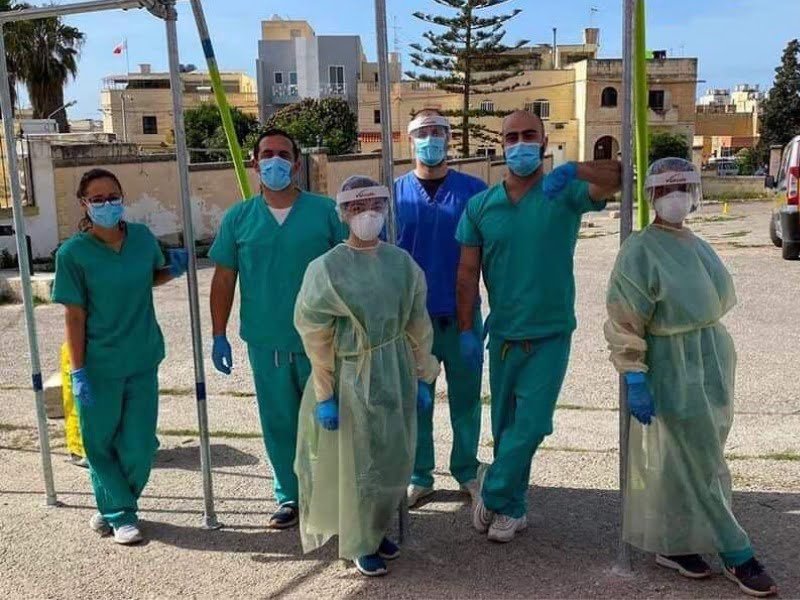An overload in the number of persons requesting COVID-19 swab tests has overwhelmed the nation’s testing centres, as workers complain they are overworked and centres remain understaffed.
Martina Agius works in one of the swabbing centres and told The Shift that workers are exhausted as they carry out countless swabs every day.
“I wouldn’t know how many people we swab every day. We are constantly going, and in one car you can easily have three or four persons waiting for a swab,” she told The Shift.
A recent spike in COVID-19 cases is straining health professionals. The Shift last week quoted Medical Association of Malta president Martin Balzan who said the waiting list for swabs could easily total 10,000 people.
More than 1,500 swabs are being carried out each day, and those who call to inquire about being tested are being told to wait between seven and 10 days. Last week, the Health Minister promised more swab test centres but so far they have not been opened.
“We’re exhausted. We spend hours in the heat wearing a gown that does not allow air to pass through. Everyone is so overworked and when you’re tired, you are bound to make mistakes. And right now, we really can’t afford to make any mistakes,” Agius said.
Agius is one of the healthcare professionals who got trained so she could work at the swabbing centres. She is a health care worker who, like other professionals, such as dentists or physiotherapists, wanted to step forward and help. She has a full time job in the morning and does the swabbing work as overtime.
The government had approached healthcare workers who are not doctors or nurses to help meet the high demand of swab tests during the first wave. When things calmed down and the numbers were at their lowest, the government decided to reduce the number of workers who were engaged by contract.
Public health specialists held a meeting with Health Minister Chris Fearne to express their concern about understaffing if a second wave hit harder than the first.
“A private company was engaged to hire foreign workers, which was a good move by the authorities. The only problem was that most of these workers are foreigners and do not necessarily know how to speak English. That language barrier is proving to be an issue” Agius added.
The Shift also reported that suspect foreign companies were taking up the call to bring in healthcare workers from countries such as India to help address the staffing shortage in Malta. The company’s reliability, as well as the minimum standard requirements being advertised, brought such assistance into question.
Writing on Facebook, Martina criticised the Prime Minister for what she described as his lack of foresight. “Couldn’t you predict the future by looking at the situation in other countries and by taking advice from people working on COVID-19 duties every day on the front line?”
She then told The Shift: “The health authorities did handle the virus well in the beginning. But when things calmed down, it seems like the government focused on the economic problem and panicked.”
The low stock of protective gear is another issue. Agius said it would be impossible to carry out this work without the correct equipment and it meant less staff could operate because they had no protective gear.
Normally, a ‘testing lane’ at a swab centre is taken care of by one healthcare worker and a ‘swabbing buddy’ assists, whose job it is to ensure samples do not get contaminated. Due to the lack of personnel, the swabbing buddies had to be eliminated.
This morning, workers at the swabbing centres were informed that the government will be deploying more staff to help with the workload.
She also referred to delays in being paid, though authorities claimed payment problems were the result of administration issues. Many workers are still waiting for payments due to them.
New cases have been hitting two-digit figures for weeks now. An exercise conducted by The Shift shows the daily average cases reported have increased since last spring when the country had implemented restrictive measures.
Other healthcare workers at Mater Dei, who spoke with The Shift, said the situation at the hospital remains under control, but they fear the situation could deteriorate quickly.
“Most of the infected cases right now are people who do not need hospitalisation. But one has to consider that these people come in contact with their parents, grandparents and other relatives who might be vulnerable. Things could turn problematic in an instant,” a healthcare professional told The Shift.












